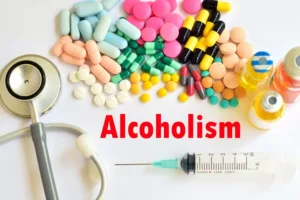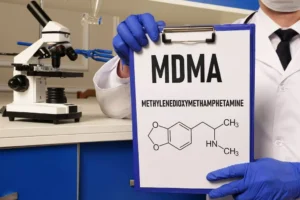
Cutting the drinking off before it can develop into addiction can help prevent its devastating outcomes. Attending educational programs can help you or your loved one identify the signs and negative effects of alcohol to avoid addiction. Alcohol use disorder severely impacts an individual’s personality and, as a result, can make them unrecognizable from the person they were before they started drinking. People with alcohol addiction often become secretive over time to hide their dependence out of fear, shame or guilt.
- While you might think it selfish to distance yourself from a friend or family member, it’s essential to look out for your own well-being before you can help someone else.
- Professional interventions allow family members to communicate constructively in a safe environment.
- There may be very little you can do to help someone with AUD until they are ready to get help, but you can stop letting someone’s drinking problem dominate your thoughts and your life.
- For men, moderate drinking is defined as consuming up to two drinks per day, and for women, it’s up to one drink per day.
Their Social Life Revolves Around Alcohol

While this isn’t an exhaustive list of the symptoms of alcohol use disorder, one of the biggest indicators is that alcohol is having a significantly negative impact on your life and your relationships with others. In fact, research from 2019 has shown that alcohol behavioral couple therapy can help participants drink less, decrease conflict, and increase communication between partners. Drinking alcohol doesn’t just affect your relationship with your partner — it can also have an impact on your children’s mental health, too. A review of the literature found a significant relationship between alcohol and domestic violence — with one 2020 study in Australia citing alcohol as a factor in roughly 24% to 54% of family and domestic violence police reports.
Schedule time with a couple’s counselor to help build better communication
Significant others may be able to hide their drinking, and it may be easier for them to keep problems a secret. A high-functioning alcoholic often does such a good job of hiding their issues that other people don’t know the issues exist. Functional alcoholics may not even realize they’re actively concealing symptoms of their disorder. If someone in a relationship has a drinking problem, it can leave the other person feeling disconnected and distant from their partner.
Is Alcohol Impacting Your Relationship?
Managing your drinking and getting the right support are really important for your mental health. People who are clinically alcohol dependent can die if they suddenly, completely stop drinking. Talk to a GP or your local community alcohol service who will be able to get help for you to alcohol and relationships reduce your drinking safely. Alcohol can affect our relationships in all sorts of ways and can have a negative impact on our own health and wellbeing and that of those we love. Family therapy is an effective option to address myriad issues that arise in connection to alcohol misuse.
- For librarians and administrators, your personal account also provides access to institutional account management.
- Moreover, the link between alcohol and aggression is well-documented, with alcohol consumption often leading to aggressive behaviors that can escalate into domestic violence, further damaging the fabric of family relationships.
- Emotional abuse includes threats, insults and controlling behavior, according to the Office on Women’s Health website.
- For instance, a codependent spouse may look to the drinker for constant validation, become overly involved in the person’s emotions, and try to “fix” them.
- Also, consider setting boundaries to ensure your own physical and mental health.
How to Manage a Relationship with a High-Functioning Alcoholic

People may develop a maladjustment to a loved one’s drinking that causes them to enable it through the process of caring for it. Individuals who misuse alcohol experience physical impairments that can draw others into caring for them. While some individuals may be able to resist the urge to help, many will not, especially spouses, https://ecosoberhouse.com/ children, and other family members or concerned individuals in the person’s immediate environment. It has long been noted (Thibaut & Kelley, 1959) that close intimate relationships provide a context for each partner’s emotions and behaviors to have an impact upon, and be affected by, the other partner’s emotions and behaviors.
- When your loved one swears to you and to themselves that they will never touch another drop of alcohol, you might believe them.
- In fact, research from 2019 has shown that alcohol behavioral couple therapy can help participants drink less, decrease conflict, and increase communication between partners.
- Alcohol misuse significantly impacts family dynamics, often leading to neglect of responsibilities and a deterioration in the well-being of family members.
- It doesn’t reach a certain level and remain there for very long; it continues to get worse until the person with an alcohol problem seeks help.
- Despite your best efforts, there may be instances where the relationship becomes too detrimental to your own health and well-being.
Mehta also reminds that, for those trying to quit drinking, it’s important to understand if you were drinking to cope with something (such as drinking in social settings due to social anxiety) and to find alternative methods of coping. Unfortunately, studies consistently demonstrate that, regardless of the sex of the partner with AUD, if at least one person in the relationship has an AUD, the risk of DV is high. Being able to say no to alcohol when you don’t want to drink, requires a few simple phrases you can say in a pinch. One-liners like “I’m driving,” “No, thanks, I just finished one,” and “I’ve had my limit for tonight,” can help you avoid giving in to the pressure to drink when you’re trying to cut back. And finally, talk with your friends about your decision and ask for support. These groups allow members to speak in a safe environment about the impact alcohol has on their lives.
- Because he is a member of a support group that stresses the importance of anonymity at the public level, he does not use his photograph or his real name on this website.
- In a study of 131 married couples, Haber and Jacob (1997) observed couple interactions during a nondrinking and a drinking session, during which both partners were free to choose their own type and quantity of alcohol.
- While there exist myriad risk factors for IPA perpetration (for a review, see Capaldi, Knoble, Shortt, & Kim, 2012), alcohol use is among the most robust.
- The most important thing you should avoid doing is blaming yourself and taking negative reactions personally.
- Significant others may be able to hide their drinking, and it may be easier for them to keep problems a secret.
Alcohol and romantic relationships
This suggests that alcohol may act as a disinhibitor, potentially leading to increased aggression and reduced impulse control. However, it is important to recognize that while alcohol can exacerbate tendencies toward violence, it is not the sole cause of abusive behavior. They may put themselves and others at risk by secretly driving under the influence with children in the car. Even though they think they’re being good parents, high-functioning alcoholics can’t be fully committed to their children’s well-being when alcohol is also a major part of their life. The Substance Abuse and Mental Health Services Administration notes that families that are affected by alcohol problems have high levels of confusion and stress. This can make children who grow up in such environments more susceptible to substance use and other mental health problems.

Addiction Treatment Programs

